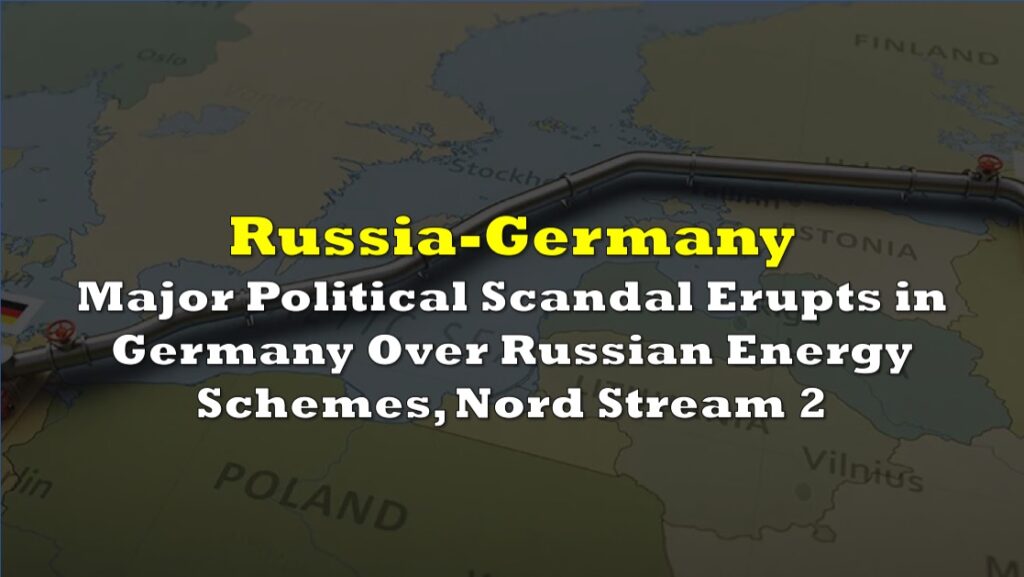German lawmakers approved constitutional changes on Tuesday that could unleash up to a trillion dollars in borrowing over the next decade to bolster defense capabilities and revitalize crumbling infrastructure.
The legislation creates new exceptions to Germany’s “debt brake,” which has capped government borrowing at 0.35% of GDP since 2009. Defense spending beyond 1% of GDP will now fall outside these restrictions.
The German parliament approved changes in the German Constitution (Grundgesetz), which will allow Germany to extend military/security expenditures basically without limit.
— (((Tendar))) (@Tendar) March 18, 2025
Votes
Yes: 513
No: 207
Abstain: 0
"Whatever it takes."
“Putin’s war is not merely against Ukraine’s territorial integrity but against Europe itself,” said presumed incoming chancellor Friedrich Merz, calling the package “the first major step toward a European defense community.”
German Chancellor-in-waiting Friedrich Merz:
— Anton Gerashchenko (@Gerashchenko_en) March 18, 2025
"The circumstances are determined above all by Putin's war of aggression against Europe. It is a war against Europe and not just a war against the territorial integrity of Ukraine.
Even if you see it differently here and there, it… pic.twitter.com/YZ92Ey9uJV
German lawmakers established a separate $533 billion infrastructure fund that will operate outside regular budget constraints for the next 12 years. The deal earmarks $100 billion for climate-related projects to secure crucial support from the Green party.
The defense exemptions extend beyond military hardware to cover civil defense, intelligence agencies, cyberdefense, and Ukraine aid.
🇩🇪 "For decades we have lived with a false sense of security. A complete overhaul of Germany's defense is needed," — Merz
— MAKS 24 🇺🇦👀 (@Maks_NAFO_FELLA) March 18, 2025
❗️"Today's decision on defense readiness is the first major step towards a new European defense community, including non-EU states." pic.twitter.com/881S3THoJh
Germany will immediately release an additional $3.3 billion to Ukraine, raising its 2025 support to $7.3 billion, cementing its position as Ukraine’s second-largest backer after the United States.
Claudia Major, senior vice president of the German Marshall Fund, said the package recognizes “the existential threat Germany is facing.”
“If your tank or rocket launcher cannot reach Poland’s eastern flank because a bridge is collapsing, you have a serious problem,” Major told Reuters.
The government pushed the vote through the outgoing parliament where the two-thirds majority needed for constitutional changes remained achievable. Electoral gains by opposing parties would have blocked passage once the new parliament convenes later this month.
Two-thirds of Germans favor increased defense spending, according to a recent Infratest dimap poll, while only 11% support reductions.
Far-left lawmakers protested during the debate, displaying banners reading: “1914 as in 2025: No to war loans,” drawing parallels to pre-World War I military buildup.
The vote follows escalating European security concerns after a tense Oval Office meeting between President Donald Trump and Ukrainian President Volodymyr Zelensky last month, which preceded a temporary US suspension of aid to Ukraine.
Germany reached NATO’s 2% defense spending target only last year, using a special €100 billion fund created after Russia’s 2022 invasion of Ukraine. Officials expect to deplete this fund by 2027.
European Union leaders will meet Thursday in Brussels to discuss continental defense strategy, including proposals for a $150 billion loan program for air defense systems, artillery, and drones.
Information for this story was found via the sources and companies mentioned. The author has no securities or affiliations related to the organizations discussed. Not a recommendation to buy or sell. Always do additional research and consult a professional before purchasing a security. The author holds no licenses.









